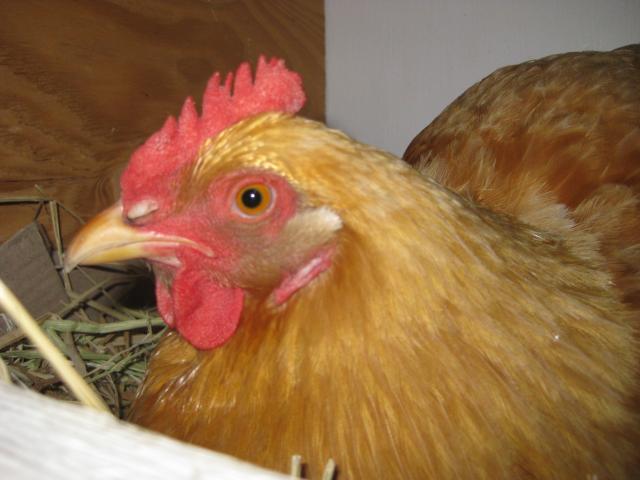I have several slightly more than one year-old Buff Orpington hens. I noticed some weeks ago that a couple of them have earlobes that are turning from red to white. I tried "cleaning" them but it wasn't a case of them being dirty or coated with dead skin cells.
I don't see any evidence of bugs. I keep the coop clean. The girls free range 14 hours a day and have access to organic layer pellets. They do sneak into the turkey pen and eat their non-organic, non-medicated feed, but I notice the earlobes changing before they had access to the turkeys.
Not all the hens have this problem, some of them have bright fire-engine red earlobes, wattles, and combs.
They have been laying regularly since they began, last October. (We're getting 4 or 5 eggs a day from seven hens, even with temps hitting 100+ all week.
So far no sign of molting.
The two that went broody and raised chicks still have nice red lobes.
Any explanation? Is this "bleaching" due to egg laying?
I don't see any evidence of bugs. I keep the coop clean. The girls free range 14 hours a day and have access to organic layer pellets. They do sneak into the turkey pen and eat their non-organic, non-medicated feed, but I notice the earlobes changing before they had access to the turkeys.
Not all the hens have this problem, some of them have bright fire-engine red earlobes, wattles, and combs.
They have been laying regularly since they began, last October. (We're getting 4 or 5 eggs a day from seven hens, even with temps hitting 100+ all week.
So far no sign of molting.
The two that went broody and raised chicks still have nice red lobes.
Any explanation? Is this "bleaching" due to egg laying?



